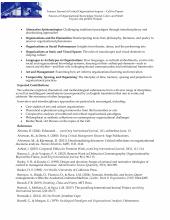In recent years, feminist scholars have made substantial inroads toward a better understanding of the intricacies and complexities of organizing. Through the metatheoretical lens of a “feminist communicology of organization,” gender is seen as a dynamic principle of organizing, and organizations are seen as fundamentally gendered. By looking at both the macro- and micro-level activities of gendered organizing, we obtain a much richer, organic understanding of the processes inherent in creating and sustaining organizations. Such an approach helps us to understand one of the newest forms of organization-the virtual one-that exists both discursively and materially only in the virtual world. To better understand how organizing is accomplished in the virtual world, we have chosen to focus on the postings to a “renegade” web site called “Teamster.net.” This site was established by and for members of the International Brotherhood of Teamsters but is not sanctioned by The Teamsters. Through content analysis, we studied the ongoing discussions concerning if, and how, this site should be moderated, and by whom. We found that these chat room dialogues exhibit the key characteristics of multiple discourses occurring simultaneously. Contributors are both social actors and the objects of multiple discourses that seek to normalize and control these actors, often occurring in disjunctive and contradictory ways. While contributors acknowledge the need for both social equality and respect, their mechanisms for dealing with these contradictions are most often unconscious; in psychoanalytic terms, compromise formations. Thus we offer this deeper understanding of virtual organizations through the metatheoretical lens of feminist communicology and the theoretical lens of compromise formations.





